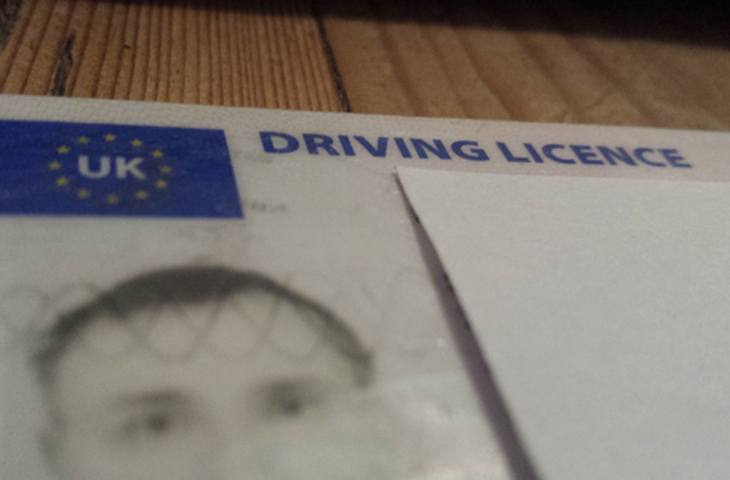
If you are convicted of a driving offence, the courts can fine you, ban you or 'endorse' your driving licence with penalty points. These penalty points will stay on your driving licence (and driving record) for either 4 or 11 years, depending on the offence for which you have been found guilty.
If, as a driver, you build up 12 penalty points within a 3 year period, you can be disqualified from driving, although if you are a new driver (those who have less than 2 years driving since passing their test), this is 6 penalty points in 2 years. As a new driver, if your licence is revoked within 2 years, you will have to apply and pay for a new provisional licence and pass both theory and practical parts of the driving or riding test again to get a full licence.
Endorsements usually start from the date of conviction, but can be back-dated to the date of the offence, and is 'valid' for all but the last year of the length given i.e. 3 years for a 4-year endorsement and 10 years, for an 11-year endorsement. By 'valid', this means a time period when a court can take the offence into consideration if you offend again. To calculate any insurance premiums, an insurer can use all 4 years of a 4-year endorsement, and the first 5 years of an 11-year endorsement.
Each endorsement has a special code and is given ‘penalty points’ on a scale from 1 to 11. You get more points for more serious offences.
An offence stays on your licence for 11 years from date of conviction If the offence is:
- Drink Driving or Drug Driving - shown on the driving record as DR10, DR20, DR30, DR31, DR61 and DR80
- Causing death by careless driving while under the influence of drink or drugs – shown on the driving record as CD40, CD50 and CD60
- Causing death by careless driving, then failing to provide a specimen for analysis – shown on the driving record as CD70
An offence stays on your licence for 4 years from date of conviction If the offence is:
- Failing to stop after an accident - AC10
- Failing to give particulars or report an accident within 24 hours - AC20
- Undefined accident offences - AC30
- Driving while disqualifies - BA10
- Attempting to drive while disqualified - BA30
- Causing death whilst driving while disqualified BA40
- Causing serious injury whilst driving while disqualified
- Driving without due care and attention - CD10
- Driving without reasonable consideration for other road users - CD20
- Driving without due care and attention or without reasonable consideration for other road users - CD30
- Causing death by careless, or inconsiderate, driving - CD80
- Causing death by driving: unlicensed, disqualified or uninsured drivers - CD90
- Using a vehicle with defective brakes - CU10
- Causing or likely to cause danger by reason of use of unsuitable vehicle or using a vehicle with parts or accessories (excluding brakes, steering or tyres) in a dangerous condition - CU20
- Using a vehicle with defective tyre(s) - CU30
- Using a vehicle with defective steering - CU40
- Causing or likely to cause danger by reason of load or passengers - CU50
- Breach of requirements as to control of the vehicle, mobile telephone etc - CU80
- Causing serious injury by dangerous driving - DD10
- Dangerous driving - DD40
- Manslaughter or culpable homicide while driving a vehicle - DD60
- Causing death by dangerous driving - DD80
- Furious Driving - DD90
- In charge of a vehicle while alcohol level above limit - DR40
- In charge of a vehicle while unfit through drink - DR50
- Failure to provide a specimen for analysis in circumstances other than driving or attempting to drive - DR60
- Failing to provide specimen for breath test - DR70
- In charge of a vehicle while drug level above specified limit - DG40
- In charge of a vehicle when unfit through drugs - DR90
- Using a vehicle uninsured against third party risks - IN10
- Driving otherwise than in accordance with a licence - LC20
- Driving after making a false declaration about fitness when applying for a licence - LC30
- Driving a vehicle having failed to notify a disability - LC40
- Driving after a licence has been revoked or refused on medical grounds - LC50
- Leaving a vehicle in a dangerous position - MS10
- Unlawful pillion riding - MS20
- Play street offences - MS30
- Motor racing on the highway - MS50
- Offences not covered by other codes (including offences relating to breach of requirements as to control of vehicle) - MS60
- Driving with uncorrected defective eyesight - MS70
- Refusing to submit to an eyesight test - MS80
- Failure to give information as to identity of driver etc - MS90
- Contravention of special roads regulations (excluding speed limits) - MW10
- Undefined contravention of pedestrian crossing regulations - PC10
- Contravention of pedestrian crossing regulations with moving vehicle - PC20
- Contravention of pedestrian crossing regulations with stationary vehicle - PC30
- Exceeding goods vehicle speed limits - SP10
- Exceeding speed limit for type of vehicle (excluding goods or passenger vehicles) - SP20
- Exceeding statutory speed limit on a public road - SP30
- Exceeding passenger vehicle speed limit - SP40
- Exceeding speed limit on a motorway - SP50
- Failing to comply with traffic light signals - TS10
- Failing to comply with double white lines - TS20
- Failing to comply with ‘stop’ sign - TS30
- Failing to comply with direction of a constable/warden - TS40
- Failing to comply with traffic sign (excluding ‘stop’ signs, traffic lights or double white lines) - TS50
- Failing to comply with a school crossing patrol sign - TS60
- Undefined failure to comply with a traffic direction sign - TS70
- Aggravated taking of a vehicle - UT50
- Disqualification under ‘totting-up’ - if the total of penalty points reaches 12 or more within 3 years - TT99
There are different codes in Northern Ireland that is also valid in the UK.
Each offence carries a different number of penalty points. More information on disqualification time periods, can be found on the Government's website here.

